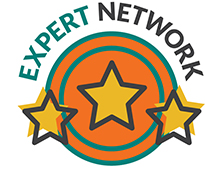Starting A Career In Clinical Research: 7 Things We Wish We Knew
By Laurie Halloran and Michelle Pratt, Halloran Consulting Group, Inc.

When I first transitioned to a career in clinical research from a practicing registered nurse, I was drawn to the opportunity to work toward advancing therapeutic candidates through a pipeline and out to clinics and patients. The impact I could have working in this setting felt like a natural next step in a career centered on improving the health of others. My education in clinical research was nonexistent before I hit the road on my first clinical research associate (CRA) job. During my first week, I was handed a binder of standard operating procedures (SOPs) and was told to book a flight to Illinois to begin site monitoring the following week. Within the first three months, I was assigned to seven different trials in my territory, the ENTIRE Midwest. Gripped with panic and anxiety associated with not knowing how to do my assigned job, I sought out my boss and told her I needed to know more about monitoring. Her response was, “What do you want to know?” I felt like I didn’t know enough to do my job correctly, but I didn’t really know what questions to ask. Subsequently, I was left to flounder alone in places like Peoria, Illinois, and Des Moines, Iowa, hoping I wasn’t missing important trial details.
to work toward advancing therapeutic candidates through a pipeline and out to clinics and patients. The impact I could have working in this setting felt like a natural next step in a career centered on improving the health of others. My education in clinical research was nonexistent before I hit the road on my first clinical research associate (CRA) job. During my first week, I was handed a binder of standard operating procedures (SOPs) and was told to book a flight to Illinois to begin site monitoring the following week. Within the first three months, I was assigned to seven different trials in my territory, the ENTIRE Midwest. Gripped with panic and anxiety associated with not knowing how to do my assigned job, I sought out my boss and told her I needed to know more about monitoring. Her response was, “What do you want to know?” I felt like I didn’t know enough to do my job correctly, but I didn’t really know what questions to ask. Subsequently, I was left to flounder alone in places like Peoria, Illinois, and Des Moines, Iowa, hoping I wasn’t missing important trial details.
This experience has shaped my passion for clinical research education at all levels and my vow to pay it forward. I try to consistently work on initiatives that bring better learning opportunities and more defined competencies and standards to clinical research roles. – Laurie Halloran
In recent years, careers in clinical research have become more plentiful and the opportunities for formal clinical research education are more accessible. The industry, however, is still looking at a talent shortage that could become acute in the next decade.1 A main contributor to this shortage is a lack of focused intervention at every level to identify the skills, behaviors, and knowledge that will enable motivated candidates to begin and mature their careers in the industry. The real challenge clinical research professionals face at every stage on their career paths is the need to be two things: technically astute (e.g., regulatory knowledge, medical/pathophysiology expertise, data science, technology solution navigation) and emotionally intelligent. These two components of clinical research professionals are pivotal to the success at every level. The intent of this three-part series is to provide insight and guidance to help professional clinical researchers effectively navigate their careers.
Entry-Level Clinical Research Positions And Potential Career Paths
A clinical research coordinator (CRC)2 works under the direction of a principal investigator (PI) at a clinical site to coordinate and facilitate the daily clinical research activities, including screening and recruiting patients, collecting and recording data, and maintaining study documentation. Working at the site provides a different perspective of clinical research than a CRA or clinical trial associate (CTA) role. Progression on the site side of clinical research typically starts with more senior CRC roles, CRC manager, and, depending on the size of the research site, even leading an entire research department. Many CRCs also move to the industry side of clinical research into a CTA or CRA role.
CTA is a position that supports management of clinical trials under the direction of the clinical trial manager (CTM). In this role, a CTA gains exposure to many aspects of trial management, including working directly with study plans and timelines, vendor oversight, patient enrollment, regulatory documentation, and oversight of the trial master file (TMF) (all study documentation). Many CTAs advance their career though more senior CTA roles, CRA roles, and eventually as CTM or clinical project manager (CPM).
A CRA3 is the most commonly available clinical research position. In this role, a CRA acts as a liaison between the clinical trial management and the clinical sites that are enrolling subjects. The main responsibilities are clinical monitoring, overseeing the progress of the clinical trial at the site and ensuring that it is being conducted appropriately. The daily focus is on protocol and regulatory compliance, data reliability, and the proper care, treatment, and safety of patients. Many CRA positions can be found at contract research organizations (CROs); however, some sponsor companies also have typical CRA roles or an in-house CRA position. In terms of career development, a CRA typically progresses up through more senior CRA roles to team lead, CRA manager, or potentially to CPM.
Any of these positions is a great way to get into clinical research. Each of these positions provides an education on all elements of clinical research and a foundation for future roles and growth in the industry. By getting this broad view, you will be able to learn more about the specific aspects of clinical research that interest you so you can tailor your career path4 in that direction. In addition, try to identify an area that continues to challenge you and helps you grow.
If you are interested in exploring different options, we suggest visiting the ACRP’s Find Your Element campaign.5
Advice From Former Entry-Level Candidates
While the behaviors and skills expected for an entry-level position in clinical research are similar to those that would be expected of any professional candidate, the importance of patient safety, the volatility of the industry, and the number of technical skills you must develop in a short period of time are challenges unique to the life sciences space. For those who have not had any formal training in clinical research, here are seven insights that would have been helpful at the beginning of our careers.
1. Patient Safety Drives All the Work You Do
Clinical research has strict regulations worldwide that have been inspired by key historical events (e.g., Tuskegee syphilis experiments, Jesse Gelsinger’s death).6,7,8 Change has often come following tragedy or public outcry. Understanding the historical context helps you understand why clinical research is differentiated from other experimentation. Also, it is important to understand that whether or not you are working directly with patients, you can impact patient safety.
2. Understand the “Whys”
You can work in this industry for a long time and never be directly involved in drug or device development. Review the drug discovery and development process9 to understand the different phases of development and associated regulations. Figure out where your position fits into this process and why it is important. Become familiar with the roles of the different departments in your company and why you need to interact with them. Understanding the bigger picture, emphasizing the reason why every responsibility you have, regardless of career level, is meaningful and important to help you understand why the clinical trial you are working on is being done.
3. Learn your GxPs
Good practice quality guidelines10 ensure that your drug or device is safe and functions as expected. Having at least a high-level understanding of these guidelines will help you approach your work with a quality mindset and support a culture of quality at your company.
4. If It Is Not Documented, It Didn’t Happen
Everything in clinical research must be documented, and document control is not optional. All companies should have standardized processes for the preparation, recording, and correction of data as well as the maintenance of the records throughout the life cycle of a document. Be organized in your document filing and don’t put your TMF filing and maintenance on the back burner.
5. You Will Have Many Questions
In this industry, you will never have all the answers, regardless of how experienced you are. Questions not only help you but help study team members or sites who “don’t know what they don’t know.” Question things that do not make sense operationally (e.g., ask if a procedure is really necessary when developing a protocol), always considering the patients, the big picture, and your objectives.
6. Communication Skills Are Key11
With so many moving parts in clinical research, having effective communication habits is necessary. Educational programs do not necessarily set you up with the soft skills12 that you need when entering the workforce. Become familiar with the concept of soft skills and when you join a company, take the time to understand their communication best practices.
7. You Are the Driver of Your Career
Larger companies in the industry may have a developed training program; however, at many smaller companies you will be learning on the job. Be as proactive as you can to create a network and a system of support (e.g., a coach or mentor). Volunteer for opportunities outside of your comfort zone, mentor others, and learn as much as you can. Advocate for yourself and try not to compare yourself to others, as there are so many different needed skillsets in this industry. Find a path that feels like the right fit, based on your strengths and passions.
As an individual contributor in clinical research, your speed, high-quality results and deliverables, proactivity in keeping management informed, and attention to detail are all equal. Different skills, abilities, and insights will be needed depending on if you would like to continue in a contributing role or move toward management and leadership. In our next installment of this series, we will discuss the transition from an individual contributor to a management role.
References:
- https://www.pharmavoice.com/article/2016-11-talent-war/
- https://forteresearch.com/news/roles-and-responsibilities-of-a-clinical-research-coordinator/
- https://clinicalresearchfastrack.com/clinical-research-associate-career/
- https://tracs.unc.edu/index.php/services/education/careers
- https://careersinclinicalresearch.org/
- https://blog.lillytrialguide.com/clinical-trial-history-regulations-regulatory-guidelines-requirements/
- http://cdn2.hubspot.net/hub/149400/file-410979295-pdf/docs/CRT_Timeline_download.pdf
- https://clinicalcenter.nih.gov/recruit/ethics.html
- https://www.nebiolab.com/drug-discovery-and-development-process/
- https://www.ich.org/page/quality-guidelines
- https://www.indeed.com/career-advice/resumes-cover-letters/communication-skills
- https://www.indeed.com/career-advice/resumes-cover-letters/soft-skills
About The Authors:
 Laurie Halloran founded the Halloran Consulting Group in 1998. Her time as a pediatric ICU nurse has inspired her to start a company that helps move new therapies through the FDA processes to get them into the hands of patients that are desperately in need. Halloran has been named 2018 Women’s Business Enterprise Star by the Women's Business Enterprise National Council (WBENC) and has won a 2017 Enterprising Women of the Year Award from e magazine.
Laurie Halloran founded the Halloran Consulting Group in 1998. Her time as a pediatric ICU nurse has inspired her to start a company that helps move new therapies through the FDA processes to get them into the hands of patients that are desperately in need. Halloran has been named 2018 Women’s Business Enterprise Star by the Women's Business Enterprise National Council (WBENC) and has won a 2017 Enterprising Women of the Year Award from e magazine.
 Michelle Pratt is a senior manager of consulting operations at Halloran Consulting Group. She has over 13 years of experience in the pharmaceutical industry. Her career has focused on scientific leadership, project management, training, employee development, mentoring, process improvement, departmental oversight, and business operations. Before joining Halloran, Pratt served in global roles including director of operations and director of scientific and medical services at Parexel Medical Imaging. She holds an MS in clinical investigation from the Boston University School of Medicine and an MBA from Fox School of Business at Temple University.
Michelle Pratt is a senior manager of consulting operations at Halloran Consulting Group. She has over 13 years of experience in the pharmaceutical industry. Her career has focused on scientific leadership, project management, training, employee development, mentoring, process improvement, departmental oversight, and business operations. Before joining Halloran, Pratt served in global roles including director of operations and director of scientific and medical services at Parexel Medical Imaging. She holds an MS in clinical investigation from the Boston University School of Medicine and an MBA from Fox School of Business at Temple University.
